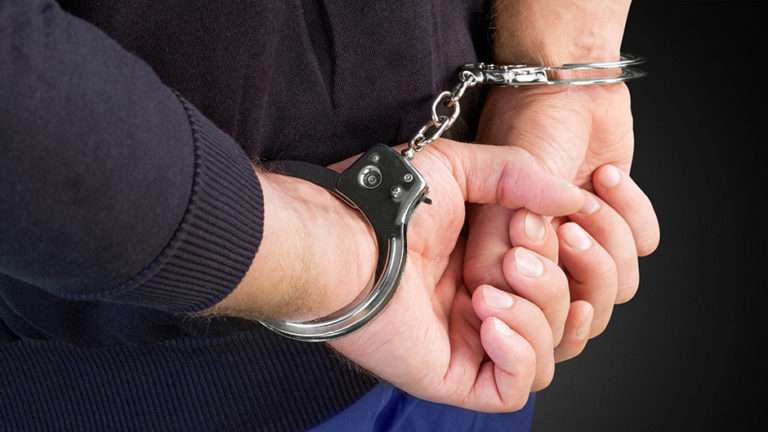The Essential Guide to Becoming an Animal Control Officer in BC

Are you in law enforcement and have a passion for animals?
Here's how you can combine both. In this comprehensive guide, we will delve into the intriguing world of Animal Control Officers (ACOs) in British Columbia (BC).
In Ontario? Check out the Ontario Animal Control Officer course.
A profession often overlooked but crucial to maintaining public safety and ensuring the welfare of animals, becoming an ACO in BC can be a fulfilling career choice for those with a deep commitment to both law enforcement and animal welfare.
A Brief Overview of the Animal Control Officer Role
Animal Control Officers are dedicated professionals responsible for enforcing animal-related bylaws and regulations within their communities.
Their duties encompass a wide range of responsibilities, including responding to animal-related emergencies, investigating animal cruelty or neglect cases, rescuing injured or stray animals, and educating the public on responsible pet ownership.
In British Columbia, Animal Control Officers play a crucial role in maintaining public safety, managing wildlife encounters, and upholding animal welfare standards.
They act as a vital link between the community and animal-related laws, ensuring both the safety of citizens and the well-being of animals.
The Importance of Animal Control Officers
Animal Control Officers are instrumental in maintaining a harmonious coexistence between humans and animals.
They contribute significantly to public safety by addressing issues such as aggressive animals, strays, and wildlife interactions that could pose risks to communities.
Moreover, ACOs advocate for the ethical treatment of animals, striving to improve their living conditions and overall welfare.
Their role extends to educating the public about responsible pet ownership, spaying and neutering, vaccinations, and providing information on wildlife management.
Animal Control Officers actively contribute to creating safer and more compassionate communities by fostering understanding and compliance with animal-related laws.
This guide will walk you through the steps to transition from law enforcement to becoming an Animal Control Officer in BC, shedding light on the necessary skills, qualifications, and educational pathways essential for a successful transition.
We aim to empower law enforcement enthusiasts to embark on this fulfilling career journey, safeguarding both public safety and the welfare of animals.
Why Animal Control is a Natural Extension of Law Enforcement
Animal control and a law enforcement career, seemingly distinct fields, share fundamental similarities that facilitate a logical and advantageous transition for individuals seeking to combine their passion for animals with a law enforcement background.
Both roles are deeply rooted in a commitment to public safety. Law enforcement officers ensure human safety, while animal control officers extend this dedication to encompass people and animals by managing and addressing animal-related incidents.
The enforcement of laws and regulations is a cornerstone of both professions. Law enforcement enforces laws related to human conduct, whereas animal control enforces regulations about animal welfare, ownership, and community safety.
Moreover, community engagement and education are pivotal aspects of both roles.
Law enforcement educates the public on laws and safety measures, while animal control enlightens the community about responsible pet ownership and animal welfare.
How Skills from Law Enforcement Can be Transferred to an Animal Control Career?
Transitioning from law enforcement to animal control is a natural progression, showcasing transferable skills like communication, crisis management, conflict resolution, and legal understanding.
These capabilities are crucial in engaging with animal owners and the community to promote responsible pet ownership and address concerns effectively.
Crisis management and conflict resolution abilities are vital in handling challenging animal situations and resolving disputes related to animal welfare.
Additionally, legal knowledge acquired in law enforcement is directly applicable to enforcing animal control ordinances and regulations.
Moreover, investigative and analytical proficiencies are paramount in probing cases of animal abuse, ensuring appropriate actions are taken based on evidence to prioritize animal well-being.
Community engagement skills acquired in law enforcement empower professionals to organize events and educational programs, furthering responsible pet ownership and animal welfare within the community.
Lastly, teamwork and collaboration, ingrained in law enforcement, extend seamlessly into animal control, fostering effective coordination for comprehensive animal welfare within the community.
The Role and Responsibilities of an Animal Control Officer in BC
Animal control officers in British Columbia (BC) play a vital role in maintaining public safety and animal welfare within their communities.
On a day-to-day basis, these officers engage in a wide range of tasks. They are responsible for responding to and investigating reports of animal cruelty, neglect, or abuse.
This often involves conducting inspections, gathering evidence, and working with law enforcement to ensure the proper care and treatment of animals.
Additionally, animal control officers handle cases of stray or lost animals, providing shelter and attempting to reunite them with their owners.
They may also be involved in capturing and removing dangerous or aggressive animals to prevent harm to humans or other animals.
In some instances, they may administer first aid or provide medical care to injured animals and oversee the safe transport of animals to veterinary facilities.
In terms of legal aspects, animal control officers in BC are mandated to enforce various animal-related laws and regulations.
This includes ensuring compliance with licensing and vaccination requirements for pet owners, as well as investigating and addressing complaints regarding noise disturbances, aggressive behaviour, or unauthorized animal breeding.
They work closely with local law enforcement agencies and may issue warnings, citations, or court summonses to individuals in violation of these laws.
Furthermore, they often educate the public about responsible pet ownership, animal welfare laws, and the importance of spaying and neutering to control the animal population.
Educational Pathways and Requirements
Becoming an animal control officer in British Columbia (BC) typically requires a minimum educational qualification of a high school diploma or its equivalent.
However, many employers may prefer candidates with additional education or relevant coursework.
Pursuing post-secondary education in animal sciences, veterinary technology, or criminal justice can provide a solid foundation for the role.
These programs often cover topics such as animal behaviour, welfare, law enforcement procedures, and public safety protocols.
Acquiring knowledge in these areas can better prepare individuals for the challenges and responsibilities of the position.
To enhance their qualifications and gain a competitive edge, aspiring animal control officers can pursue additional courses or certifications.
Courses in conflict resolution, animal handling and restraint, first aid, and CPR can be immensely beneficial.
Additionally, certifications related to animal control, such as the US-based Certified Animal Control Officer (CACO) or National Animal Control and Humane Officer Academy (NACHO) certifications, can demonstrate a commitment to professional development and a deeper understanding of the field.
Moreover, law enforcement training can be highly advantageous for animal control officers, given the nature of their work and the need for effective collaboration with law enforcement agencies.
Courses or training in criminal law, investigation techniques, and communication skills are valuable.
Learning about the legal aspects and procedures relevant to animal-related laws and enforcement can bolster an officer's ability to navigate complex situations and ensure compliance with regulations, ultimately promoting public safety and animal welfare.
Must-Have Skills and Qualities
In the role of an animal control officer in British Columbia (BC), certain essential skills and qualities are crucial to effectively carry out the responsibilities of the job.
Conflict resolution skills are paramount, as officers often encounter challenging situations involving disputes between neighbours, pet owners, or cases of animal aggression.
Being able to mediate conflicts and find peaceful resolutions is vital to maintaining community harmony and ensuring the well-being of both animals and people.
Empathy is another key quality that an animal control officer must possess.
Understanding and showing compassion towards distressed or injured animals, as well as dealing empathetically with concerned pet owners, is fundamental.
This skill enables officers to approach their duties with a sense of understanding and care, which is essential for fostering trust within the community and ensuring the humane treatment of animals.
Investigative skills are also highly valuable in this role.
Officers need to be adept at gathering and evaluating evidence in cases of animal abuse, neglect, or illegal activities related to animals.
This includes the ability to conduct thorough inspections, document findings accurately, and collaborate with law enforcement agencies to build strong cases against offenders.
These investigative skills are often honed through law enforcement roles, where officers learn how to handle evidence, interview witnesses, and build cases that stand up in a legal context.
Thus, a background in law enforcement can significantly contribute to an animal control officer's proficiency in the investigative aspects of the job.
Training Programs and On-the-Job Experience
Aspiring to become animal control officers have access to various training programs designed to equip them with the necessary skills and knowledge for the role.
The British Columbia Society for the Prevention of Cruelty to Animals (BC SPCA) offers comprehensive training programs, such as the Animal Control Officer (ACO) certification course.
This program covers crucial aspects, including animal behaviour, welfare, legal regulations, and practical handling techniques, providing a well-rounded understanding of the responsibilities associated with the position.
Additionally, there are other educational institutions and organizations that offer courses and workshops focusing on animal control and welfare.
This is one such course and is 100% online so you can complete it at your own pace.
While formal training is essential, the importance of hands-on experience cannot be overstated.
On-the-job experience is a crucial aspect of becoming proficient in handling a wide range of situations that animal control officers may encounter daily. Internships, volunteer opportunities, or employment in animal shelters, rescue organizations, or veterinary clinics can provide invaluable hands-on experience.
This exposure allows individuals to develop practical skills in animal handling, behaviour assessment, and communication with pet owners and the community.
Gaining practical experience not only enhances their abilities but also helps them build a network within the animal welfare field, fostering a deeper understanding of the profession and its challenges.
Job Search Strategies for Law Enforcement Professionals
Leveraging a law enforcement background can be a significant advantage when seeking a role as an animal control officer in British Columbia (BC).
Law enforcement experience often equips individuals with critical skills such as conflict resolution, investigative abilities, and understanding of legal procedures—skills highly relevant to the responsibilities of an animal control officer.
Highlighting these skills and experiences in resumes and interviews can set candidates apart and demonstrate their suitability for the role.
Moreover, emphasizing the ability to work effectively under pressure, handle challenging situations, and collaborate with diverse stakeholders further showcases their preparedness for the demands of animal control work.
In terms of finding job openings and networking within the industry, candidates should start by exploring local government job boards, animal welfare organizations, and the BC SPCA website.
These platforms often post job listings for animal control officer positions.
Networking is equally crucial; attending industry-related events, workshops, or seminars can help establish connections with professionals in the field. Joining relevant online forums or social media groups focused on animal welfare or law enforcement can also provide opportunities to connect with individuals in the industry.
Engaging in informational interviews with current or former animal control officers can offer valuable insights into the profession and potential job openings.
Building a strong professional network can enhance visibility and increase the likelihood of securing a position in this competitive field.
Salary Expectations and Career Growth
The salary range for Animal Control Officers varies based on factors such as experience, location, the specific organization, and the level of responsibility.
Animal Control Officers in BC can typically expect a starting salary in the range of approximately $40,000 to $50,000 per year.
With experience and further training, this can increase to upwards of $60,000 annually.
Regarding career growth opportunities and advancement, individuals in the field of animal control may pursue various paths.
With additional certifications, training, and experience, they can advance to supervisory or managerial roles within animal control departments.
Furthermore, opportunities to specialize in certain areas such as investigations, community outreach, or policy development may arise.
Some may choose to transition into related fields like animal welfare advocacy, veterinary services, or animal rescue organizations.
Continuing education and staying updated with advancements in animal welfare and law can enhance one's expertise and potentially lead to higher-paying positions and increased responsibilities within the field.
Conclusion
Transitioning from a law enforcement career to becoming an Animal Control Officer (ACO) in British Columbia (BC) is a natural and fulfilling progression, uniting a passion for animals with law enforcement expertise.
The journey begins by recognizing the fundamental alignment between the two roles, both centred on public safety, law enforcement, and community engagement.
Key skills like communication, crisis management, conflict resolution, and legal understanding acquired in law enforcement are highly transferable and valuable in the realm of animal control.
To embark on this rewarding career, aspiring ACOs need to attain the necessary certifications, enhance their skills through education and training, and gain practical experience in the field.
Professionally, being an ACO in BC offers an opportunity to make a tangible difference in the community's safety and animal welfare.
It allows professionals to advocate for responsible pet ownership, ensure the humane treatment of animals, and mitigate risks related to wildlife interactions.
Personally, the role provides immense satisfaction in knowing that efforts contribute to creating safer, more compassionate communities where animals are treated with care and understanding.
The blend of law enforcement principles with a passion for animal welfare adds a unique dimension to one's career, making every day on the job purposeful and fulfilling.
Embrace Your Love for Animals and Launch Your Career as an Animal Control Officer in BC Today!
If you are an individual with a law enforcement background and a love for animals, take the first step toward this fulfilling career path.
Begin by exploring the necessary certifications and educational opportunities available to equip you with the right skills.
Research job openings, connect with professionals in the field, and immerse yourself in the world of animal welfare.
Your journey to becoming an Animal Control Officer in BC awaits, promising a rewarding career that balances law enforcement dedication with compassion for animals.
Last Updated on Jul 5, 2024





